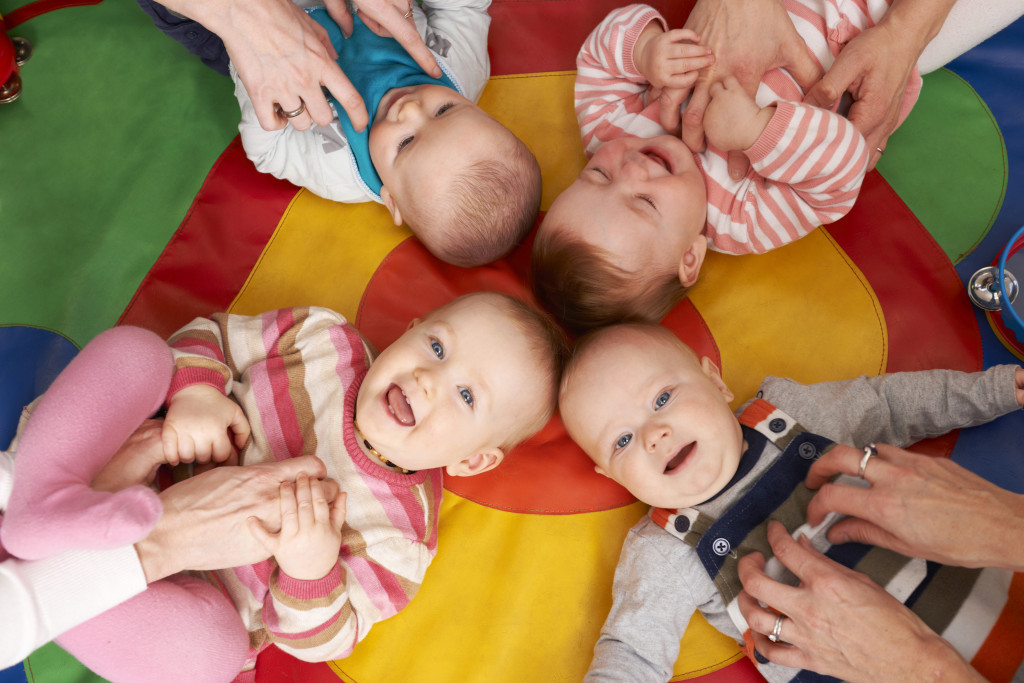The pandemic has impacted people in different ways. Children, of course, had to stop going to school and, instead, receive education at home in front of a laptop and away from their peers. Adults, too, stopped going to the office and instead worked from home.
But, babies and toddlers have also been stuck at home in the past year. Many parents fear that the isolation caused by the pandemic will negatively impact the health and development of their children.
Where Did Flu Season Go?
The past year has been full of tragedy; there is one silver lining. For the first time in a long time, there was no flu season.
Experts in public health have been worried that the flu, which re-emerges every year around fall and winter, will worsen the already bad COVID-19 situation. Hospitals across the country were filling up with ill patients who have tested positive with COVID-19. How will the public health system handle a wave of patients who have caught the flu?
It turned out, the same measures used to avoid COVID-19 also worked for the flu.
Between Oct. 1, 2020 and Jan. 30, 2021, only 155 people across the United States were brought to the hospital because of the flu. For comparison, the 2019-2020 flu season recorded 8,633 hospitalizations. That is a 98 percent decrease within one year.
The same precautions that people have been using to protect themselves from COVID-19 also protect them from influenza, which causes the flu. All the hand washing, mask-wearing, and physical distancing are also effective against other respiratory infections.
Many parents noticed that their young children, who usually get the sniffles around fall and winter, did not. School was out. There is no chance that children will catch germs from their peers.
Was Isolation Good for Babies?

Parents want the best for their babies. They spend time choosing the right products for their babies to protect them from harm. While it is natural that parents want to shield their babies from germs, sometimes, it is necessary.
Encouraging viruses and bacteria has the capacity to build and strengthen the immune system of children. That is why people get vaccinated. They introduce parts or inactivated pathogens into the body to teach it how to recognize and fight the threat.
Exposure to various microbes in early childhood has been proven to be beneficial because it trains their immune system to discern what is dangerous and what is not. A theory proposed by an English scientist in 1989 put forward the idea that children in developed countries grew up with disinfectant wipes and bleach which has increased the prevalence of allergies and autoimmune diseases.
In one recent study, researchers found that children exposed to more animal feces and had experienced diarrhea before the age of two were less likely to have inflammation later on in life. Inflammation is a crucial market because it has been linked to various illnesses, including diabetes, heart disease, and Alzheimer’s disease.
Experts are also now encouraging parents to feed their babies common allergens such as peanuts and eggs early into their infancy to let their immune systems know little by little that these foods are safe to eat.
What Is the Potential Long-term Impact of the Pandemic?
Whether staying at home for the entirety of last year was bad or good for babies is hard to say. There are some benefits to it. Those who otherwise would have been exposed to the respiratory syncytial virus (RSV), a respiratory virus that children catch before the age of two, were spared. RSV can lead to hospitalization and, sometimes, trigger asthma disease.
On the other hand, there are infections that people will be better off catching as children than adults. Take the Cytomegalovirus (CMV) and Epstein-Barr virus (EBV), for example. These are infections caused by herpes viruses that may only present minor symptoms to young children but can be serious to older kids. EBV can lead to infectious mononucleosis, which causes fever, sore throat, body aches, swollen lymph nodes, swollen liver and/or spleen, and extreme fatigue.
Moreover, children who caught CMV will reap some immune system benefits throughout their lives. Once the virus is in the body, it stays there. Experts explain that the genes of CMV directly shape the immune response, potentially enabling the body to better fight off infections. In fact, those who have CMV respond better to the flu vaccine.
Do not worry; the pandemic did not doom babies into a life of serious illnesses. There are other ways to shape and boost your children’s immune system aside from letting them out into the world, one of which is breastfeeding. Breast milk contains the antibodies of mothers. Many households also adopted pets in the past year, which can reduce the risk of eczema and asthma.
Moreover, the pandemic will end. Once the situation improves, people can go back to their daily lives. Families can introduce the world and the many germs that exist in it to their babies.
